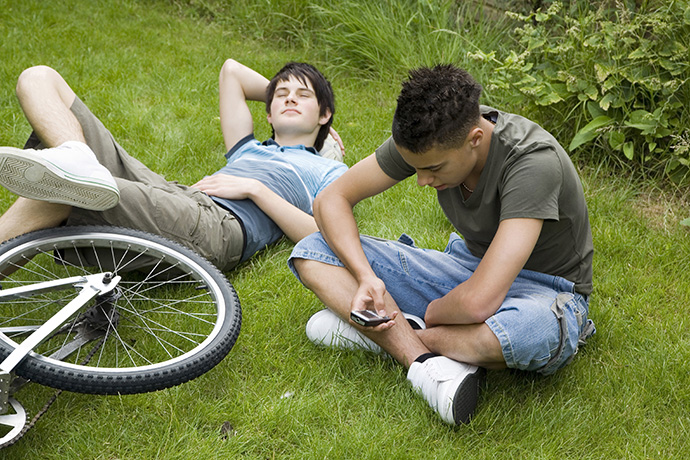Ask an Expert: Four Ways to Help Your Kids Unplug
 In today's world, children are exposed to vast amounts of technology. An estimated 75% of teenagers own a cell phone, and, not surprisingly, social media sites are their favorite places to visit. In fact, one study showed that 22% of teenagers log onto their favorite social media sites more than 10 times a day. Consider these tips to keep your child engaged in activities other than technology.
In today's world, children are exposed to vast amounts of technology. An estimated 75% of teenagers own a cell phone, and, not surprisingly, social media sites are their favorite places to visit. In fact, one study showed that 22% of teenagers log onto their favorite social media sites more than 10 times a day. Consider these tips to keep your child engaged in activities other than technology.
1. Parents should first set an example by monitoring their own technology use and putting technology away when they interact with their children. Children need parents who are physically, emotionally and mentally available to them so a solid parent-child relationship bond can be formed.
2. Establish phone-free zones and times throughout the day. These could include during mealtimes, homework, family activities or right before bed since technology can be especially distracting during these times. Some parents even have children turn in their technology during these activities so they can focus or interact without interruptions.
3. Parents can limit technology use and encourage physical exercise and social activities that do not involve technology. There are numerous apps parents can use to monitor children's technology time and limit its use. With time limitations on some apps, children can learn to regulate their own use if they know how much time they have. Parents can also require that all forms of technology be turned in at night.
4. Encourage some technology use. Our children's worlds will continue to be filled with various types of technology, which isn't necessarily a negative thing. Parents can find ways to connect with their children through technology or join them in ways that show they are interested in and aware of their children's technology use.
Children are exposed to many forms of technology each day. Parents can take a leading role in setting an example and helping them develop healthy technology habits, starting when they are young. Parents should monitor children's devices, know the passcodes for each device and let their children know they will review what is being said or done on the devices. Parents can also make sure the privacy settings on the Internet and Facebook are set to appropriate levels. Technology should be a privilege that is earned and respected. It is best to discuss rules, expectations and consequences and be open about what your children should do when they see images or visit websites that are not appropriate.
By: David Schramm, Utah State University Extension assistant professor and family life specialist, david.schramm@usu.edu, 435-797-8183
What Next?
Get useful tips like this as soon as we release them. Sign up here.


 Utah 4-H & Youth
Utah 4-H & Youth